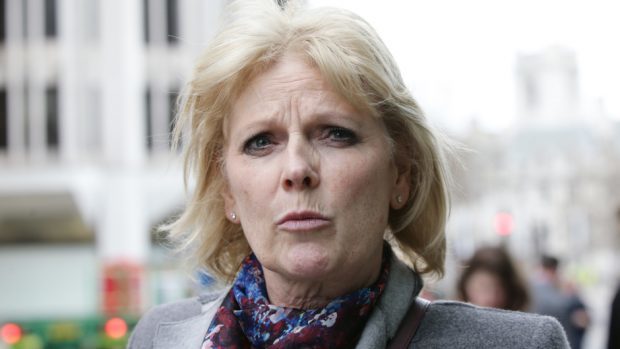By the time Brexit is supposed to happen we will be approaching the 230th anniversary of the French revolution, which also shook Europe to the core – and caused mayhem for decades.
We are not exactly storming the Bastille, but ugly Brexit scenes outside and inside the Commons are deeply worrying.
There has been a Brexit-fuelled revolution in British politics which changed our views and relationships forever, particularly with elitist politicians living in their own bubble who became disinterested and disconnected with ordinary people.
It comes to a head tomorrow with the final Brexit vote – except it won’t be the end in all likelihood as the bitter inter-party warfare continues.
Maybe it is complacent to think a deal will come from out of the blue, but that is often what happens in politics and business or even when mere mortals like us haggle over buying a house or car or any desirable object. If both sides wants something badly enough from a deal, a compromise is chiselled out.
I remember someone saying after the Brexit vote that despite years of horse-trading ahead a final deal might not actually get done until the last minute.
We look to our politicians for leadership to bind the country together and what do we see? A poisonous battle fuelled by personal and party ambition. It mirrors the current toxicity and intolerance of public opinion rather than rising above it.
It is hard to trust MPs after political manoeuvres of the past few days. We can’t tell who is acting in the national interest, their own interest, has a genuine interest in brokering a deal or simply wants to sabotage Brexit. The reputation of MPs has plumbed new depths.
What would the great French philosopher and writer Voltaire make of it?
Even although he died a decade before the French revolution, he was credited as being one of the major influences who shaped it.
He drank gallons of coffee a day apparently, which he said boosted his creative thought.
Maybe Mrs May should have served coffee at her drinks party with Brexiteer Tory rebels last week.
After enforced exile in London, Voltaire returned to Paris with a deep admiration for Britain’s constitutional government and tolerance of free speech. How ironic in the current rabid atmosphere.
Tory Anna Soubry was pursued by a small Brexit mob the other day and accused of being a “Nazi”. She is a provocative and combative MP who expects a bruising response, but she did not deserve that for speaking her mind.
When Voltaire finally went home he published a book on the British way of doing things, which was promptly burned in Paris.
Of his many very quotable thoughts, one which shines out for me is, “I don’t agree with what you say, but I would defend to the death your right to say it.”
It is as fresh and relevant today as when uttered two centuries ago. More so, given the nastiness which has smeared Brexit – from both sides of the debate. It is a fundamental right to speak your mind without being shouted down.
It should be about robust and challenging debate, but respect as well. It’s a lesson which many parliamentarians have forgotten as they descend into a rabble.
Much of the general casual abuse in society has footprints leading back to social media, which has been turned into an unpleasant swamp by an insidious bunch of people who swim around venting their hate and prejudice against free speech. Like a virus, this menace has mushroomed into bullying face-to-face confrontations, such as that which befell Ms Soubry.
Not only that, ignorant cheerleaders on the sidelines applaud it.
It’s dangerous lynch-mob mentality.
As Voltaire observed, “If someone can persuade you to accept absurdities, they can persuade you to accept atrocities”.
Like a genie, Brexit is out of the bottle and won’t go back.
As Mrs May and others have said there is a fear of democratic “breach of trust” from a failure to deliver some form of consensual Brexit, which might well eclipse the remainers’ efforts so far in its intensity and anger over “betrayal” – spilling over into more abuse and even public disorder.
As always in these seemingly impossible negotiations, compromise is usually the only solution because there has been no general consensus over current options – Mrs May’s Brexit, No-Brexit, another referendum or a general election.
Alex Salmond spoke about the invigorating and robust nature of the independence referendum in Scotland, but it was also far from pleasant.
When Ms Sturgeon waved the IndyRef2 baton it blew up in her hand like a stick of dynamite after the catastrophic snap general election called by Mrs May.
Ms Sturgeon is poised again for IndyRef2 in hope that people are so horrified by Brexit they will be desperate to sign on the dotted line for a breakaway.
There is also the explosive Sturgeon-Salmond fallout over his misconduct allegations, which has split the SNP, as she limps towards IndyRef2 – wounded after a humiliating inquisition in Holyrood into her role and facing a potential investigation.
As a result, expect the shouting match during any “new conversation” on Scottish independence to be just as loud, unpleasant and divisive as Brexit.
